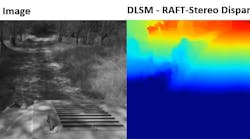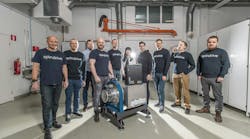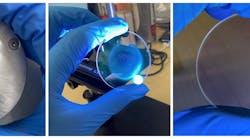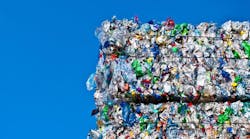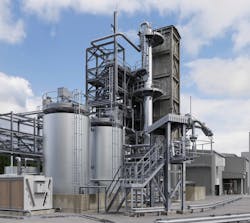Instead of plastic waste being incinerated and causing harmful emissions, a new technology allows it to be turned back into oil in just 30 minutes—using only pressure, heat, and water. This revolutionary recycling technology, called Hydrothermal Plastics Recycling Solution (or HydroPRS), is now being launched commercially for the first time by the British company Mura Technology by commissioning the world's first plant, marking a significant step towards an environmentally friendly and resource-saving recycling economy for plastics.
Mura Technology's first HydroPRS (Hydrothermal Plastic Recycling Solution) plastics recycling plant opened its doors back in October to investors, partners, and advocates at the Wilton International industrial site in Teesside, UK to celebrate before its official opening in 2024.
Using what's called supercritical water, which is high-temperature and high-pressure water, the recycling process turns products made from multi-layer mixed plastics—previously considered inseparable—into virgin-equivalent, recycled hydrocarbon feedstocks. These feedstocks can then be used to manufacture new plastics and other products, making a previously laborious and time-consuming task into an easy, sustainable solution. Until now, mixed plastics could only be separated by type in mechanical recycling with great effort and, therefore, usually ended up in incineration.
Currently, the plant's capacity can handle 20,000 tons per year with plans to triple this size in the coming years.
HydroPRS – A New Type of Reconversion Saves 80% CO2 Emissions
It's not hard to see the advantages this recycling process has brought about. Through the reconversion of waste plastic to virgin-replacement feedstocks, crude oil is not lost as a valuable fossil raw material. At the same time, independent life-cycle analyses by WMG at the University of Warwick have shown that this process reduces CO2 emissions by 80% than with combustion. Compared to fossil oil-based raw materials, HydroPRS produces products with equivalent or lower global warming potential and saves up to around 5 barrels of oil for every ton of plastic waste processed.
Allowing the same material to be recycled an unlimited number of times, HyroPRS is a pioneering technology that has the potential to significantly reduce single-use plastics and permanently increase the recyclability of materials in the plastics industry.
This pioneering technology allows the same material to be recycled an unlimited number of times, meaning that HydroPRS can potentially significantly reduce single-use plastics and permanently increase the recyclability of materials in the plastics industry.
"This technology is a real game changer in plastics recycling," says igus CEO Frank Blase. "We are proud to be accompanying Mura on this journey as the first partner."
Blase had read about HydroPRS in 2019 and was convinced of its future viability which is why igus has invested €5 million Euros into the project to support Mura from the startup phase into commercializing the technology.
igus is also known for declaring its goal to transform plastics into a circular economy, given it manufactures plastic bearings, linear guides, e-chains, and so on. It even created a bike made from recycled plastic to showcase the possibility of sustainable urban mobility, hoping to transform plastic waste sitting in landfills and the oceans into a valuable resource.
igus already uses 99% of its plastic waste from the production of new granulate for injection molding machines, so it sees supporting HydroPRS technology as just one of the many building blocks to further the sustainability of plastics.
